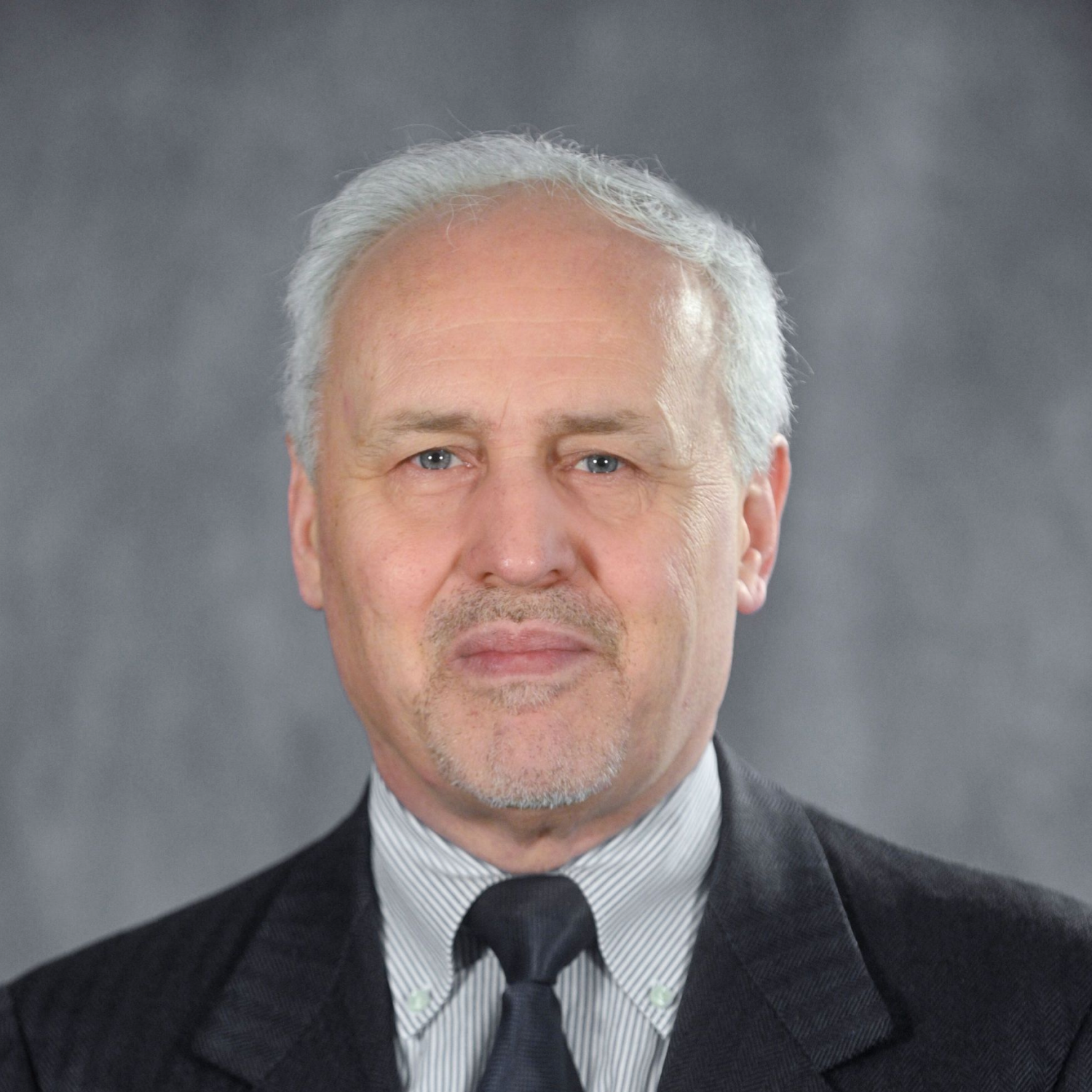SHORT BIO - ENG
Born at Siena in 1957, married and father of two daughters, he holds an undergraduate degree in Economics (University of Siena) and a Ph.D. in Economics (New York University). From November 2012 he is full professor of economics at the Department of Law, Economics, Political Sciences and Modern Languages at LUMSA University where he has chaired the Bachelor course in Economics and Business Management, the Master Degree in Economics, management and business administration, has been Deputy Rector for Academic Affairs, and Chair of the Library Committee (from October 2014 to September 2018) and Chair of the Quality Assurance Committee (from October 2014 to December 2018).
From 1999 at the University of Bari Aldo Moro, he chaired the Department of Economics & Mathematics (2005–12), was deputy Rector for international relations (2009–12), introduced and chaired the first two editions of the Master in International Business and Economic Cooperation (2005-07).
Among the other professional experiences, he was at the World Bank (as Principal Financial Economist; 1998-99) and at the Research Department of the Banca d'Italia (up to deputy director; 1984-1998). He was visiting at: Hong Kong Monetary Authority (2007), Tokyo University (2004), Asian Development Bank Institute (Tokyo, 2002-03), Princeton University (1995-96), NBER (1990). He was Economic Policy Consultant at Italy’s Ministry of Treasury (1999-2002) and Economic Consultant of the Italian Association among Popular Banks (2001-09). He is a founding member of the Think Tank at the European Association of Cooperative Banks (from 2008). He was a member of the Scientific Committee of the Report on the financial system by the Fondazione Rosselli (2007-2016) and was part of the Editorial Committee in economics of Il Mulino (2010-2015). From 2011 to 2013 he was member of the Banking Stakeholder Group at the European Banking Authority. From 2015 he consults for the Committee on Economic and Monetary Affairs of the European Parliament (until 2019 as part of a Queen Mary University of London/LUMSA consortium and thereafter within a consortium based at CEPS - Centre for European Policy Studies). He is a member of the Scientific Committee and of the Board of governors of the International Research Centre on Cooperative Finance (HEC, Montreal, Canada). Since 2023 he is a member of the Board of administrators of Etica Sgr, the first sustainable asset management company in Italy. He is a member of the Scientific Committee of the Centro Europa Ricerche (Rome, Italy) as well as of Rivista Bancaria-Minerva Bancaria. He is editor-in-chief of Economic Notes (https://onlinelibrary.wiley.com/journal/14680300 ) and co-chief editor of the Journal of Entrepreneurial and Organizational Diversity (www.jeodonline.com ).
He led (or consulted for) research or policy action projects in various countries: Indonesia, Korea, Malaysia, Philippines, Thailand (World Bank ASEM: 1998-99); China (2002-03 & 2004-05); Serbia (2004-05); Turkey (EU project: 2005); Albania (Programme Italy-Albania: 2007-08); China, Vietnam (Asia-Invest Programme: 2008-09); Asia-Europe Meeting (2009).
His research interests include: financial market imperfections and the transmission of the monetary/financial shocks (especially analysis of the credit crunch), banking structure, rating agencies, corporate governance, finance-growth links, migration, company internationalization, family business, the Chinese economy, sustainability.
He envisaged and contributed building the School of Saint Nicholas for Intercultural Dialogue (SNS), a laic non-profit institution aiming at empowering society with education, knowledge and problem solving towards sustainability, interdisciplinary and intercultural dialogue (www.saintnicholas-school.com ).
At LUMSA he has:
1. co-founded and chairs the CeRBE (Center for Relationship Banking and Economics; http://www.lumsa.it/ricerca_strutture_cerbe and https://sites.google.com/site/cerbelumsa/home ). Established in 2013, the CeRBE aims to developing avenues of research and training in order to better understand the importance of relational goods as a means to overcome a simple Laissez-faire approach. In particular, the Center conducts academic research, from both the empirical and theoretical points of view, on two main fields: Relationship Banking and Relationship Economics.
2. co-founded and directs the Master in Management of Sustainable Development (MSDG: https://mastermsdg.lumsa.it ). MSDG is a one year international 1st level Master program offered in English language in blended format to facilitate the participation of both professionals and long-distance students. MSDG is a problem-oriented, creative, innovative, learning by doing program aiming to support graduated students from around the world, in the acquisition of knowledge and competencies on the management of Sustainable Development (SD) in dynamic environments. The Laudato si’ Encyclical by Pope Francis’, on one side, and the 2030 UN Agenda for Sustainable Development, on the other, define a new vision for people, planet and prosperity for transforming our world on the basis of a new idea of SD focused on consolidating universal peace, eradicating poverty and to heal and secure our planet ‘to shift the world on to a new sustainable and resilient path’. This new approach implies inter-linkages and the multidimensional nature of the SDGs oriented to improve the quality of life and of the world and to create conditions for sustainable, inclusive and sustained economic growth, shared prosperity and decent work for all, taking into account different levels of national development and capacities. In this new framework/vision, MSDG integrates knowledge and expertise in the field of Social Sciences with the UN Agenda SDGs and a set of strategic competencies to manage international projects on SD.
3. co-founded and chairs various Executive Masters in: Management Sostenibile; Management della Mobilità Sostenibile e Sharing; Management dell'Economia Circolare; Management della Finanza Sostenibile; Management del PNRR; Energy Management.
BREVE BIO - ITA
Nato a Siena nel 1957, coniugato e padre di due figlie. Ha una laurea in Scienze economiche (Università di Siena) e un Ph.D. in Economics (New York University). Da novembre 2012 è ordinario di economia politica nel Dipartimento di Giurisprudenza, economia, politica e lingue moderne alla LUMSA ove è stato presidente del corso di laurea triennale in Economia e gestione aziendale, del Corso di Studio magistrale in Economia, management e amministrazione d'azienda e prorettore alla didattica e al diritto allo studio nonché coordinatore della Commissione biblioteca (da ottobre 2014 a settembre 2018) e presidente del Presidio di qualità (da ottobre 2014 a dicembre 2018).
Dal 1999 all'Università di Bari Aldo Moro, ha diretto il Dipartimento di Scienze economiche e metodi matematici (2005–12), è stato delegato del Rettore alle relazioni internazionali (2009–12) e ha ideato e presieduto le prime due edizioni del Master in International Business and Economic Cooperation (2005-07). Tra le altre esperienze professionali, è stato alla World Bank (come Principal Financial Economist; 1998-99) e al Servizio Studi della Banca d'Italia (fino al grado di condirettore; dal 1984 al 1998).
È stato visiting a: Hong Kong Monetary Authority (2007), Tokyo University (2004), Asian Development Bank Institute (Tokyo, 2002-03), Princeton University (1995-96), NBER (1990). Ha fatto parte del Consiglio degli Esperti presso il Ministero dell'Economia e delle Finanze (1999-2002) e ha svolto il ruolo di consulente scientifico dell'Associazione Italiana fra le Banche Popolari (2001-09). Dal 2008 è membro fondatore del Think Tank presso la European Association of Cooperative Banks. È stato membro del Comitato Scientifico del Rapporto sul sistema finanziario della Fondazione Rosselli (2007-2016) e del Comitato Editoriale economia de Il Mulino (2010-2015). Dal 2011 al 2013 è stato membro del Banking Stakeholder Group presso la European Banking Authority. Dal 2015 è consulente del Committee on Economic and Monetary Affairs del Parlamento Europeo, fino al 2019 come parte di un consorzio Queen Mary University of London/LUMSA e poi di un consorzio incentrato sul CEPS (Centre for European Policy Studies). È membro del Comitato Scientifico e del Board of governors dell'International Research Centre on Cooperative Finance (HEC, Montreal, Canada). Dal 2023 è membro del CdA di Etica Sgr, la prima società di gestione del risparmio sostenibile in Italia. È membro del Comitato Scientifico del Centro Europa Ricerche (Roma) nonché della Rivista Bancaria-Minerva Bancaria. È editor-in-chief di Economic Notes (https://onlinelibrary.wiley.com/journal/14680300 ) e co-chief-editor del Journal of Entrepreneurial and Organizational Diversity (www.jeodonline.com ).
Ha guidato (o svolto il ruolo di consulente in) progetti connessi a ricerca o azioni di policy in vari paesi: Indonesia, Corea, Malesia, Filippine, Tailandia (World Bank ASEM: 1998-99); Cina (2002-03 & 2004-05); Serbia (2004-05); Turchia (EU project: 2005); Albania (Programme Italy-Albania: 2007-08); Cina, Vietnam (Asia-Invest Programme: 2008-09); Asia-Europe Meeting (2009).
I suoi interessi di ricerca includono: imperfezioni dei mercati finanziari e trasmissione degli shocks monetari/finanziari (specie analisi del credit crunch), struttura bancaria, agenzie di rating, corporate governance, nessi finanza-crescita, migrazioni, internazionalizzazione d'impresa, imprese di famiglia, economia cinese, sostenibilità.
Ha ideato e contribuito a costruire la St Nicholas School for Intercultural Dialogue, istituzione laica e non-profit che mira ad arricchire la società con educazione, conoscenza e problem solving verso la sostenibilità mediante il dialogo interdisciplinare e interculturale (www.saintnicholas-school.com ).
Alla LUMSA ha:
1. co-fondato e dirige il CeRBE (Center for Relationship Banking and Economics; http://www.lumsa.it/ricerca_strutture_cerbe e https://sites.google.com/site/cerbelumsa/home ). Fondato nel 2013, il CeRBE mira a sviluppare itinerari di ricerca e di formazione per capire meglio l'importanza dei beni relazionali come mezzo per superare il semplicistico approccio Laissez-faire. In particolare, il CeRBE svolge ricerca accademica, da un punto di vista sia empirico che teorico, su due campi principali: Relationship Banking e Relationship Economics.
2. co-fondato e dirige il Master in Management of Sustainable Development Goals (MSDG: https://mastermsdg.lumsa.it ). MSDG è un programma annuale di Master internazionale di 1° livello offerto in lingua inglese in formato blended per facilitare la partecipazione sia di professional che di studenti long-distance. MSDG è un programma problem-oriented, creativo, innovativo, learning by doing che mira a supportare gli studenti in possesso di una laurea di 1° livello da tutto il mondo, nell'acquisire conoscenze e competenze nel management dello Sviluppo Sostenibile (SD) in contesti dinamici. L'Enciclica Laudato si’ di Papa Francesco, da un alto, e l'Agenda 2030 per lo SD dell'ONU, dall'altro, definiscono una nuova visione per i popoli, il pianeta e la prosperità per trasformare il mondo sulla base di una nuova idea di SD incentrato sul consolidamento della pace universale, lo sradicamento della povertà e per curare e mettere in sicurezza il nostro pianeta ‘per portare il mondo su un nuovo sentiero sostenibile e resiliente’. Questo nuovo approccio implica interconnessioni e la natura multidimensionale degli SDGs orientati a migliorare la qualità della vita e del mondo e a creare condizioni per una crescita economica sostenibile, inclusiva e protratta, una prosperità condivisa e lavoro decente per tutti, considerando le difformità nazionali nei livelli di sviluppo e nelle capacità. In questo nuovo framework/visione, MSDG integra conoscenze ed expertise nel campo delle Scienze Sociali con gli SDGs dell'Agenda ONU 2030 e un insieme di competenze strategiche per il management di progetti internazionali di SD.
3. co-fondato e dirige vari Executive Master in: Management Sostenibile; Management della Mobilità Sostenibile e Sharing; Management dell'Economia Circolare; Management della Finanza Sostenibile; Management del PNRR; Energy Management.



